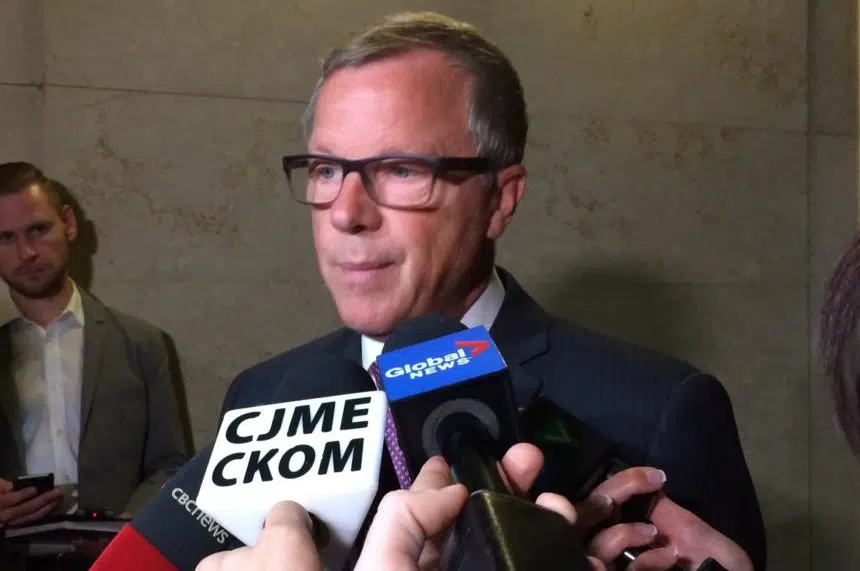For the first time since TransCanada decided to cancel its Energy East pipeline, Saskatchewan’s Premier has spoken out publicly about the project.
Last week, shortly after the company made the announcement, Brad Wall issued a statement to media and put out a message on social media regarding his thoughts. Wednesday at the legislature, he reiterated his belief the pipeline was axed mainly because of the Liberal government’s regulatory approach and not because of economics.
“I don’t think you can lay it at the feet of low commodity prices because other pipelines are being built and frankly, the oil and gas industry is being developed here in the province,” he told reporters.
He contended the feds “moved the goal posts in the middle of the process” by adding the measure of greenhouse gases both upstream and downstream for a pipeline.
Prime Minister Justin Trudeau put out a statement on Facebook urging national unity, suggesting the project was creating a rift between the two sides of the country. Trudeau said TransCanada had made its decision based on the market.
“I didn’t hear him say anything about the mayor of Montreal basically dancing on the grave of Saskatchewan and Alberta jobs by celebrating the end to this,” responded Wall.
The Premier said he’s had to come out publicly with a strong stance and strong language on not only the pipeline’s demise, but also on a number of other policy initiatives by the federal government that would lead western Canadians to believe what is done in the west is undervalued by the prime minister.
Wall said similar language was used around the National Energy Program and it eventually lead to change, with the federal government at that time eliminating the policy.
“I do think that this in the end is about policy. Western Canadians shouldn’t shy away from using strong language especially when you consider the cumulative effect of this federal government on the energy sector,” said the premier, adding it also includes taxation.
The multi-billion dollar Energy East pipeline would have moved western oil to refineries in eastern Canada. The majority of the project would have been the conversion of existing infrastructure.











